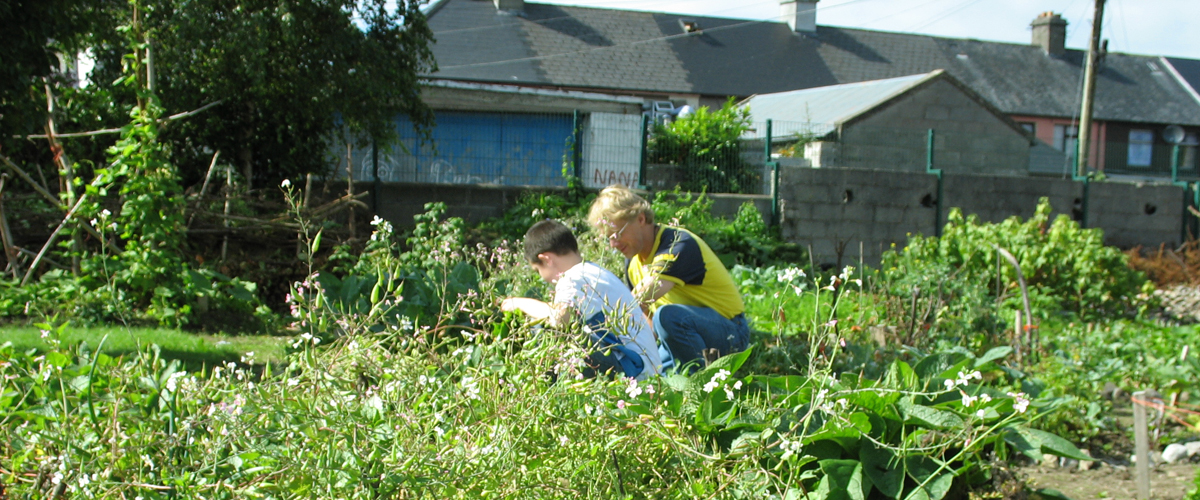5th annual Symposium – Sligo School Project – Saturday, 5th of April, 2014
Call for Contributions
Open Communication – a meaningful concept or flowery talk?
Over the last four years Sligo School Project (SSP) has organised annual symposia in which we engaged in discussions about the ethical foundations of Sligo School Project. The school is based on five principles. The first four are similar to those of the Educate Together Schools: multi-denominational, democratically run, co-educational, child-centred. The founders of SSP however found it important to also have the principle of ‘open communication’ as a fifth one complementing the others. In 2014 we will take the idea of ‘open communication’ as our topic for the symposium.
As indicated by the title we are aiming at a critical discussion of the idea of open communication in a school context. At present we are in the planning stage at which we try to identify potential guest speakers. Please take the three minutes to have a look at the following sketch of what we wish to address in the symposium. If you are interested in the topic and you feel you might add to the envisaged discussions we would be delighted to hear from you.
Envisaged lines of discussion
1. The problem of definition
The term ‘open communicaton’ can be found in numerous documents of schools, particularly in those relating to the contacts between schools and families (parents of pupils). It is common to these documents that they point to the importance of open communication for the success of a child in school. A clear definition what is meant by ‘open’ however is not given. Is that because everyone knows anyways what that is: ‘open’ communication? Or is it because it is not possible to define what makes communication ‘open’? What in fact is ‘open communication’?
2. Status Groups
Communication needs actors who are communicating. Every communication is influenced by the relationship that exists between the communicating actors. In schools there are different status groups: staff – pupils – parents.
If communication happens between members of different status groups: how does their position impinge on the communication? How does this relate to an idea of open communication?
3. Hierarchies
The status groups (staff – pupils – parents) are in themselves not homogeneous. There are hierarchies, formal and informal, amongst staff but also amongst pupils and amongst parents. How do these hierarchies influence communication? What does this mean in relation to ‘open’ communication?
4. Institutionalisation and Control Context
School is a formation within society that deals with the problem of education. As a formation it is historically specific and bound to the conditions of the society in which it emerges. The establishment of school as an institution appears in a context of control, mapping of population, statistics, compilation of registers of inhabitants etc. all exercised in a given territory by a central authority, namely the state, culminating in the compulsory attendance of children in schools. School however is not the only solution of the problem of education. Other formations, particularly the family which in itself is historically determined, are similarly engaged in education.
How does the institutionalisation of education influence the communication that goes on in schools? What does that mean in relation to ‘open communication’?
5. Professionalisation
The institutionalisation of education in schools was historically only possible on the basis of professionalisation. Without a paid workforce of teachers compulsory schooling could have not been established. At the current level of historic development there is in fact an incredible number of people involved in the institutional education of children on a paid basis. Teachers are only the most obvious of them, but there are also special needs assistants, secretaries, cleaners, caretakers, school administrators, inspectors, psychological support services, lecturers in teacher education and continuing professional development, education welfare board officers, home-school-liaison officers … As far as the status groups are considered, only pupils and parents are not paid.
How does the professionalisation of education in schools influence communication?
How does this relate to the idea of ‘open communication’?
6. Conflict Culture
Social life can not be thought of without potential conflict. Our experiences as adults involved in SSP suggest that people who come from different cultural backgrounds have different ways to deal with conflict situations. As a re-occurring theme we found that people with an Irish background seemed to be reluctant to enter into a confrontational communication, whereas people with a Continental background seemed to be much more geared towards engaging in such confrontational communication.
That led us to question, if differences of ‘conflict culture’ can be in fact traced back to cultural backgrounds? And in the context of the symposium also: How do different ‘conflict cultures’ relate to the idea of ‘open communication’?
7. Practice
On the basis of the discussions evolving from addressing the points 1 – 6: what does that mean for a member of staff in school, what does it mean for parents, what does it mean for pupils? Can we find a position for ourselves from which it is possible to make sense of an idea like ‘open communication’? And in consequence: is ‘open communication’ a concept that can be practically implemented? If so: how? What are the essential requirements that we would have to identify for such a practice?

